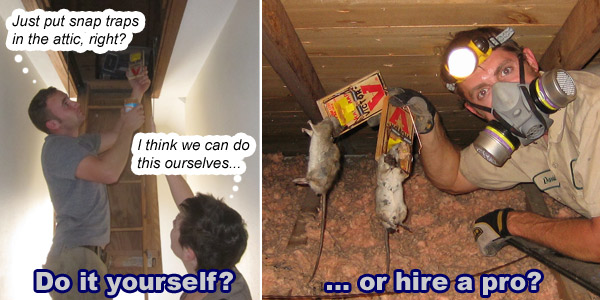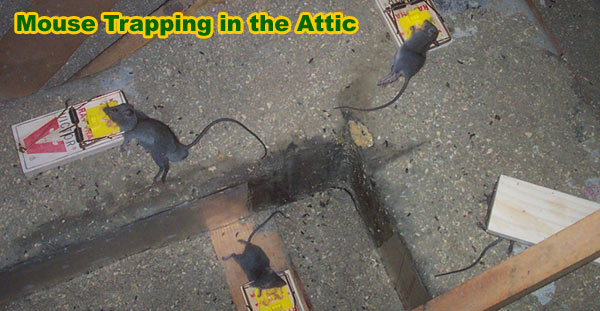
As stated on my home page,
STEP 1) Find out how the mice are getting inside your house.
STEP 2) Seal every last entry point shut.
STEP 3) Trap and remove the mice.
STEP 4) Clean the attic space, if necessary.
How To Kill The Mice In A Home -
Mice in the home are never a good thing. That is why many people are looking at how to kill mice in the home. There are a few things that people might like to try that will help them to get rid of these rodents. One of the best ways that people have found to be useful is the zapper traps. These zap the mice when they are lured into them. This kills them. That is one method that some use. The only downfall is the batteries that these require.
Others go the old fashioned route. Getting cats who love to kill mice is cost effective in many ways. However, some of you might be allergic to cats or not very fond of them. There is another method. Others have used poison. You find different places to put these. However, this is dangerous to have around small children and other animals that are supposed to be in the home. The other thing is that when they eat this, you will find that they tend to die in your vents and the smell is horrible when they rot. So, you have to weigh if you could afford the batteries or live with the smell. These are the best two ways to kill mice in the house.

Mice, Mothballs or Peppermint? Best Repellent -
If you have mice in your home or apartment then you may want to use a repellent that will get them out. There are two repellents that you can get almost in any store and they jump to mind when you have a rodent problem. The question about repelling mice; mothballs or peppermint oil, is often controversial. Both do actually work and they both have advantages and disadvantages. So which one should you choose and why should you pick them over more traditional ways to get rid of mice like mouse traps?
Mice mothballs or peppermint will work, but the things that you have to remember is that mothballs can be harmful to some household pets because they are after all toxic. Mothballs also have a distinct and not so pleasant smell, and that is why get the mice on the way. The problem is that you will not enjoy the smell either. Peppermint oil on the other hand actually smells good and it is non-toxic, but it may take a bit longer to get rid of the mice. If you have pets you should always go with peppermint oil, if you don’t and you need the mice out fast then mothballs are for you.

Will Mice Still Eat Poison? - While poison is not a natural home remedy for mouse control and removal, people use it. I highly recommend AGAINST the use of mouse poison.
A hungry mouse will eat whatever it can find. If it smells like food, the mouse will dig in. The trick is to disguise the smell of rat poison so that the mouse will be attracted to it. Some people think that mice have evolved to recognize sinister intentions in form of little blue/green pellets or cakes. Unless mice have grown bigger brains, that is probably not the case. If mice don’t eat the pellets that have been conveniently placed for the mice to find, there is a reason. It is most likely due to another, more promising source of food available to them in the house or garage, or a garden shed.
Will mice still eat poison? The answer is an unequivocal yes. Just make sure you don’t have pets that might try to eat the poison, or eat a dead mouse that has ingested poison. If you want your intruding mouse to eat the poison you have bought, a sure way to lure the critter in is to add a few things to the poison, like sunflower seeds mixed with peanut butter. The mouse will think a banquet has been set for it. You may want to wear rubber gloves if you come in contact with this bait. Wash your hands very well afterwards, even if you wore gloves.
You may want to consider the use of a
cage trap for mice, but in general these traps aren't as effective, nor are they even more humane. Go back to the
How To Get Rid of Mice in the Attic home page.